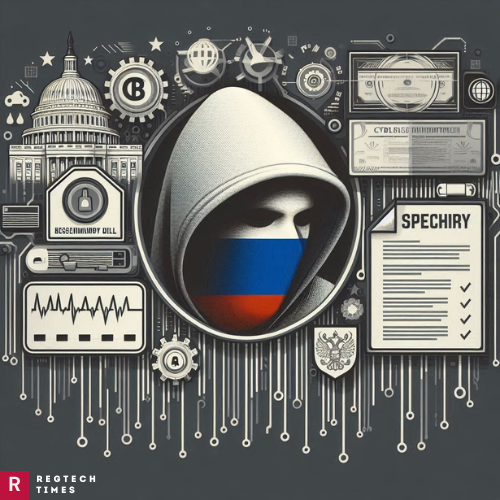The Russian government is close to completing a historic bill that would institutionalize and legalize ethical hacking in the country in response to growing cyberthreats and geopolitical pressures. In contrast to its Western counterparts, where these kinds of activities are typical, Russia’s adoption of white hat hacking is the result of a complex interaction between domestic demands, technology needs, and geopolitical tensions.
Challenges in Russia’s Cyber Ecosystem
Rumored to be a thriving IT sector, Russia has faced significant challenges in recent years, which have been made worse by the ongoing conflict with Ukraine and growing Western sanctions. As a result of this seclusion from Western technology, the nation’s cybersecurity industry is under pressure and there has been a talent exodus. The effects of tech isolation affect both offensive and defensive cyber capabilities, ranging from gear acquisition to talent retention.
The Evolution of Russian Cyber Strategy
Russia’s cyber strategy has changed to focus on more sophisticated and clandestine activities in response to these concerns. Moscow’s arsenal of cyberattack techniques has expanded to include techniques like supply chain intrusions and credential harvesting. Russia is trying to retain its cyber superiority in the face of geopolitical unrest, and this strategic shift is a practical response to external challenges.
The Role of White Hat Hacking
Amidst these changes, Russia’s cyber defenses need to be strengthened strategically, and this is where white hat hacking comes in. The Kremlin hopes to use homegrown expertise to find and fix flaws in Russian networks by legalizing ethical hacking and using bug bounty programs as incentives. In the face of Western sanctions, this proactive approach not only strengthens cybersecurity resilience but also functions as a symbolic demonstration of technological autonomy.
Understanding White Hat and Ethical Hacking
Ethical hacking, or “white hat hacking,” is the term for the legal investigation and testing of networks, systems, and applications in order to find and address security flaws. Ethical hackers simulate attacks and find vulnerabilities before malevolent hackers can take advantage of them to help organizations strengthen their cybersecurity. Sensitive data must be shielded from potential attacks using this proactive strategy in order to improve overall security.
Legitimizing Ethical Hacking
The upcoming bill on white hat hacking is a turning point for Russia’s cybersecurity environment since it clarifies what constitutes appropriate cyber behavior. The government wants to show its support for cybersecurity while enabling skilled individuals to work on national security projects, and it is doing this by formally endorsing white hat hacking. Still, there are worries about possible limitations on aiding organizations from “unfriendly” nations, which highlights the geopolitical factors influencing Russia’s cyber strategy.
Strategic Implications
Russia’s entry into the white hat hacking space highlights how organizations in the public, commercial, and criminal sectors are intertwined in determining a country’s cyberpower. A comprehensive strategy for defense and deterrence is required since cyber warfare extends beyond conventional military domains and involves a wide range of actors and techniques. To navigate the changing cyber battlefield and reduce potential hazards in a world growing more interconnected by the day, it is imperative to comprehend Russia’s cyber strategy.
The world of cybersecurity is at a turning point as Russia is ready to codify its legislation targeting white hat hackers. The complexity of contemporary cyber dangers is highlighted by the convergence of geopolitical conflicts, technology dependencies, and domestic imperatives. Russia aims to strengthen its cyber resilience and demonstrate its technological sovereignty in a sphere that is becoming more and more contested by adopting ethical hacking. But there are many obstacles in the way, necessitating a thorough comprehension of Russia’s cyber strategy as well as preventative actions to guard against new threats.


